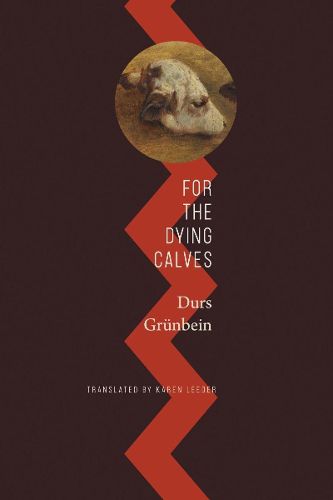Readings Newsletter
Become a Readings Member to make your shopping experience even easier.
Sign in or sign up for free!
You’re not far away from qualifying for FREE standard shipping within Australia
You’ve qualified for FREE standard shipping within Australia
The cart is loading…






Poetically written and originally given as lectures, this is a moving essay collection from Durs Grunbein.
In his four Lord Weidenfeld Lectures held in Oxford in 2019, German poet Durs Grunbein dealt with a topic that has occupied his mind ever since he began to perceive his own position within the past of his nation, his linguistic community, and his family: How is it possible that history can determine the individual poetic imagination and segregate it into private niches? Shouldn’t poetry look at the world with its own sovereign eyes instead?
In the form of a collage or photosynthesis, in image and text, Grunbein lets the fundamental opposition between poetic license and almost overwhelming bondage to history appear in an exemplary way. From the seeming trifle of a stamp with the portrait of Adolf Hitler, he moves through the phenomenon of the Fuhrer’s streets and into the inferno of aerial warfare. In the end, Grunbein argues that we are faced with the powerlessness of writing and the realization, valid to this day, that comes from confronting history. As he muses, There is something beyond literature that questions all writing.
$9.00 standard shipping within Australia
FREE standard shipping within Australia for orders over $100.00
Express & International shipping calculated at checkout
Poetically written and originally given as lectures, this is a moving essay collection from Durs Grunbein.
In his four Lord Weidenfeld Lectures held in Oxford in 2019, German poet Durs Grunbein dealt with a topic that has occupied his mind ever since he began to perceive his own position within the past of his nation, his linguistic community, and his family: How is it possible that history can determine the individual poetic imagination and segregate it into private niches? Shouldn’t poetry look at the world with its own sovereign eyes instead?
In the form of a collage or photosynthesis, in image and text, Grunbein lets the fundamental opposition between poetic license and almost overwhelming bondage to history appear in an exemplary way. From the seeming trifle of a stamp with the portrait of Adolf Hitler, he moves through the phenomenon of the Fuhrer’s streets and into the inferno of aerial warfare. In the end, Grunbein argues that we are faced with the powerlessness of writing and the realization, valid to this day, that comes from confronting history. As he muses, There is something beyond literature that questions all writing.